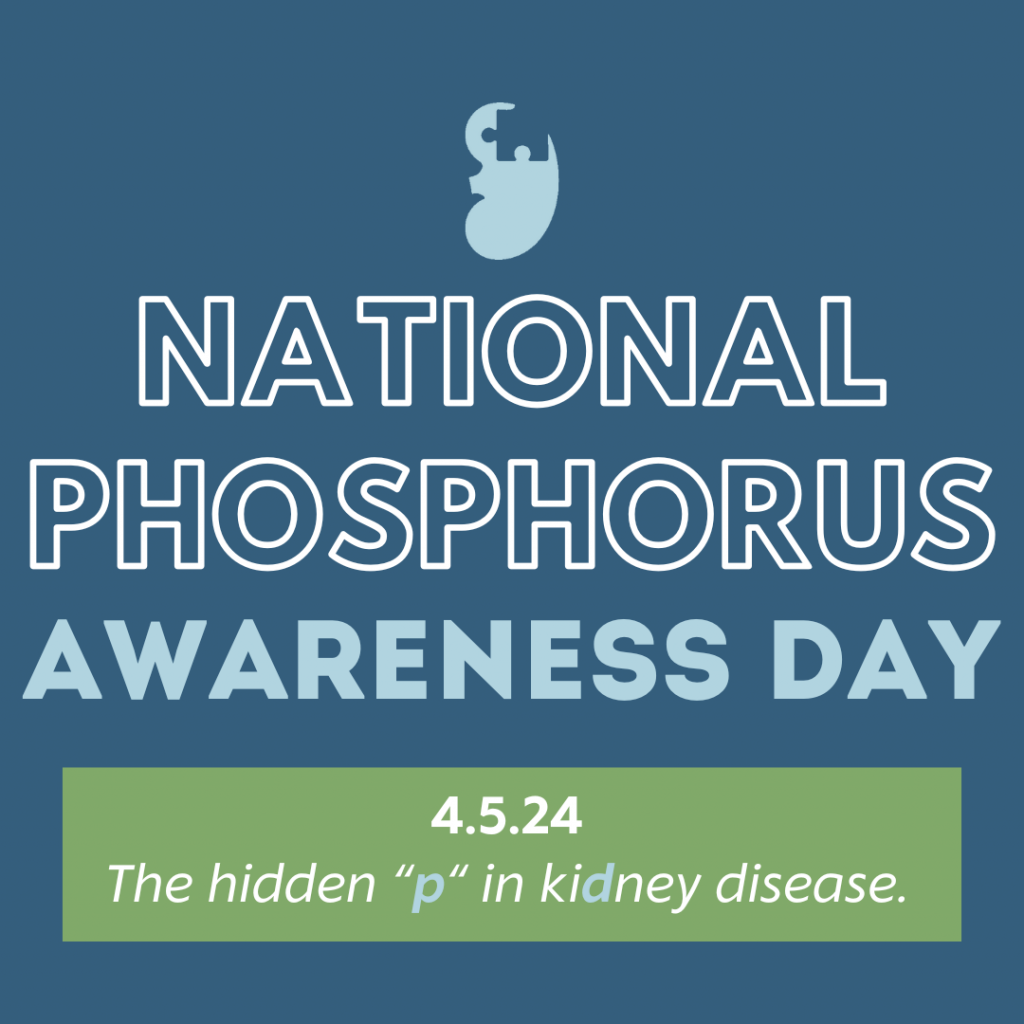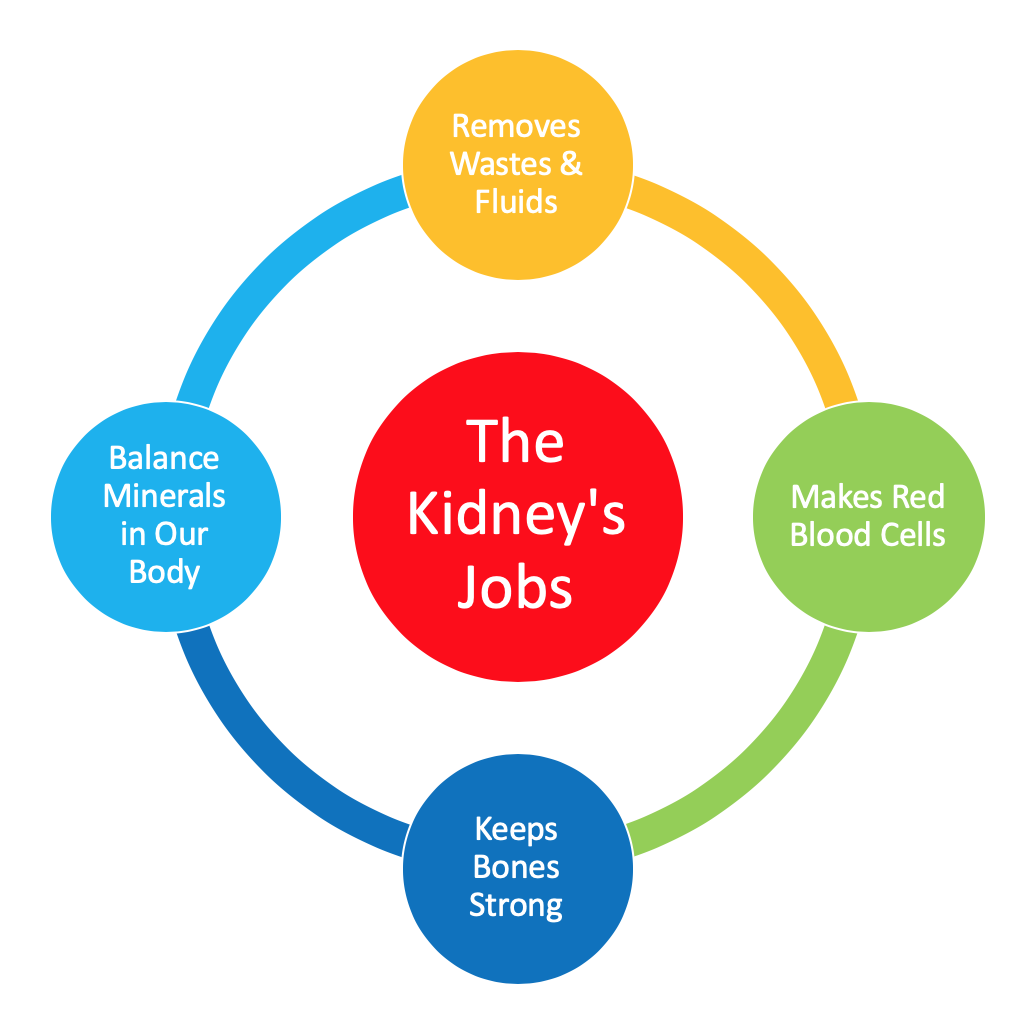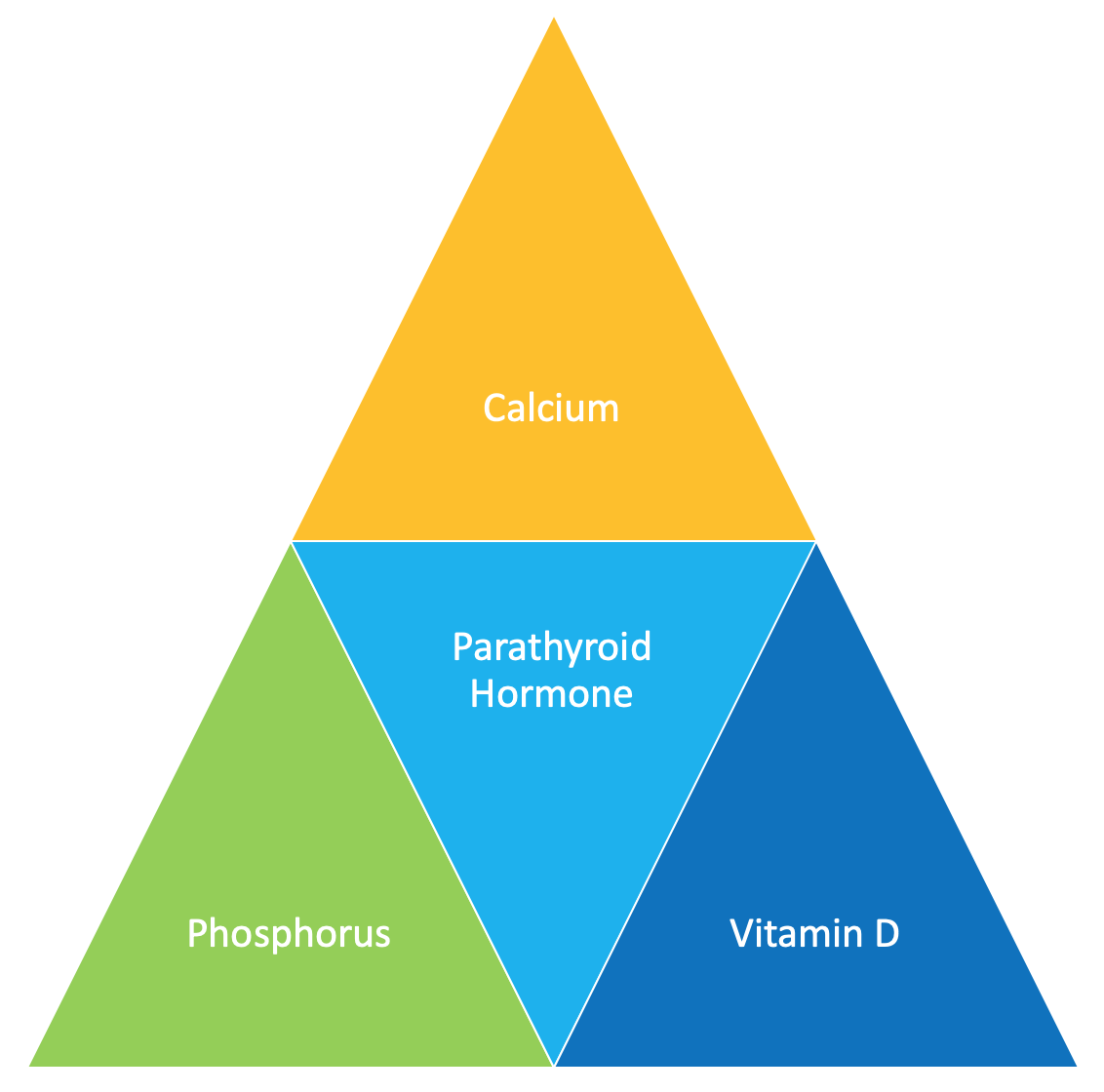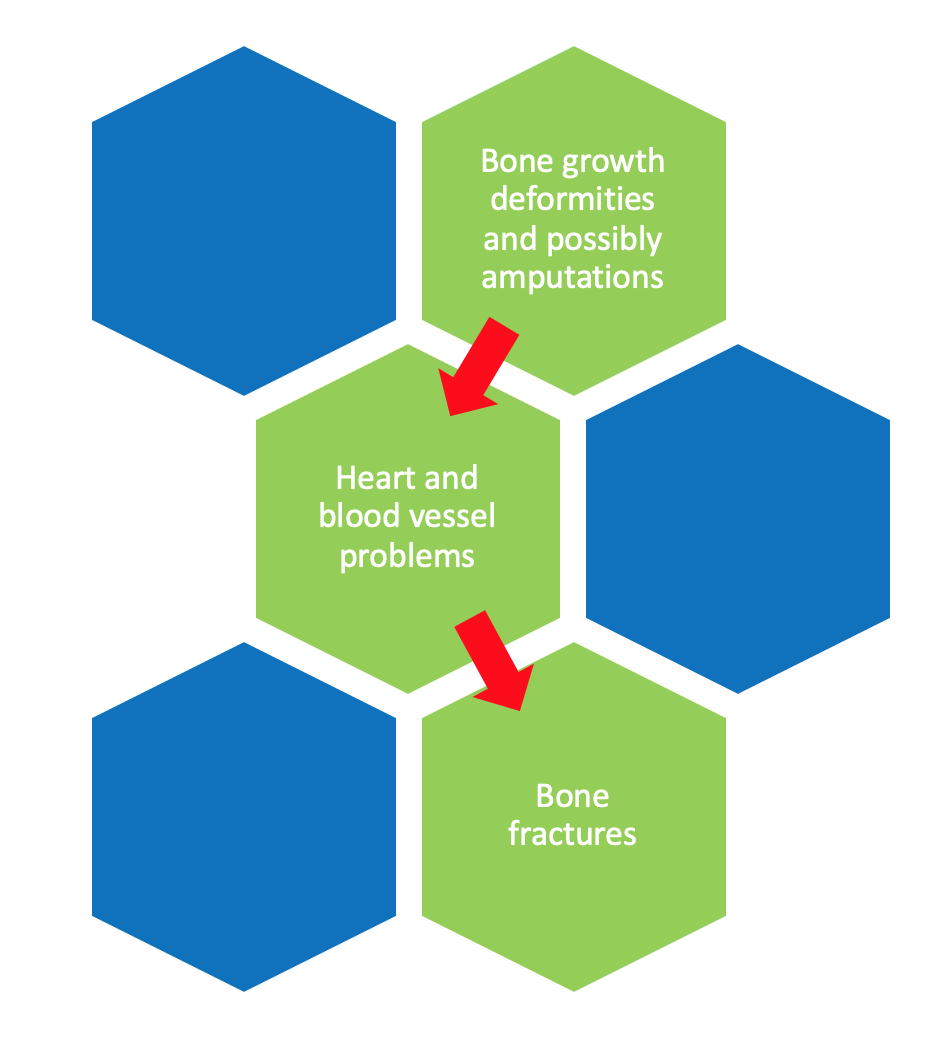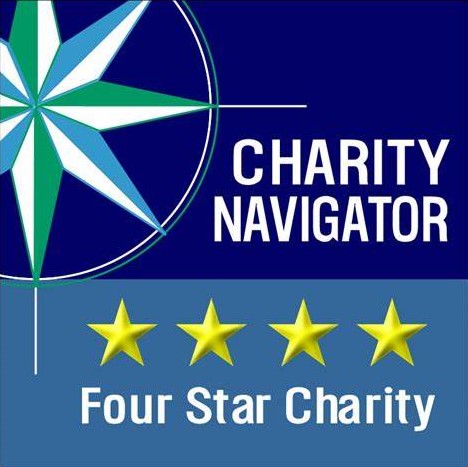Mineral and bone disease can affect those who have chronic kidney disease (CKD). But what exactly does that mean? Two minerals, calcium and phosphorus, plus hormones, are needed for healthy kidneys to function properly. The reason they are so important is because minerals and hormones help keep the bones in the body strong. But, if the minerals and hormones are out of balance, bones can become weak, brittle, and may even break.
Why are my kidneys so important for my bone health?
Healthy kidneys do many important jobs. They remove wastes and extra fluid from your body, help make red blood cells, and help keep bones strong. They also help to keep the right amount of minerals in your blood. Minerals are nutrients that your body needs to stay healthy. When you have kidney disease or kidney failure, your kidneys cannot do these important jobs. As a result, you may develop mineral and bone disorder. It is a common problem in people with kidney disease, and it affects almost everyone with kidney failure.
How will I know if I have mineral and bone disease?
Your healthcare team may begin by ordering some tests and asking you some questions: 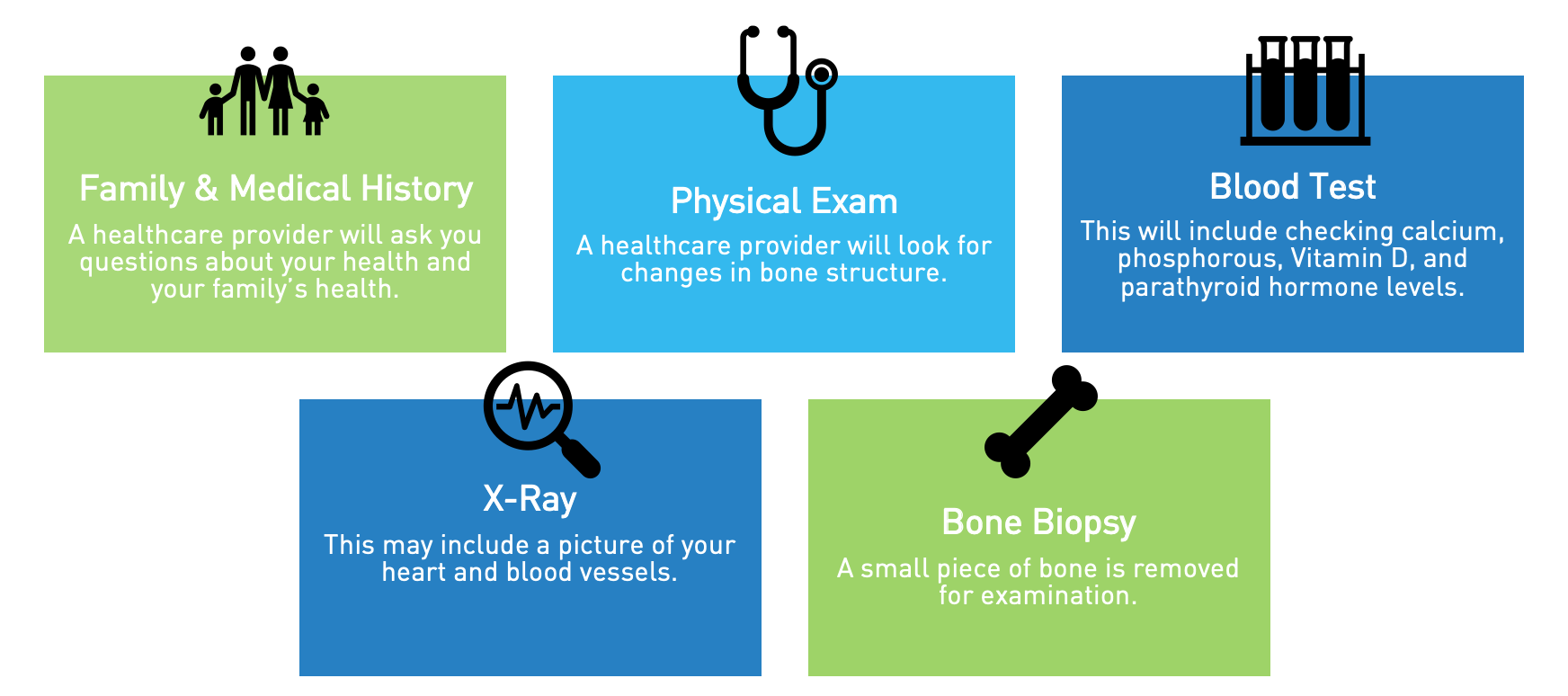
Closely monitoring your calcium, phosphorus and parathyroid hormone blood levels is essential. Your bones and joints may become achy and sore, but it takes many years for this to occur. That is why...PREVENTION IS KEY! We must keep our kidneys healthy so they can do their job properly and keep us healthy which includes our bones.
Why are minerals and hormones so important in my body? To grow and rebuild, bones need:
Even though the body needs all four of these minerals and hormones to function – the body requires balance. When these essential minerals and hormones get out of balance, the bones in the body start to develop problems. Your kidneys and your parathyroid glands work together to make sure your calcium and phosphorus levels remain balanced. When healthy, your kidneys take the Vitamin D from the foods you eat and turn it into an active form of Vitamin D called Calcitriol. Calcitriol is necessary for bone growth and development and maintaining a balanced amount of calcium in your blood. Healthy kidneys also remove extra phosphorus from the blood, and that also helps to keep bones strong.
What happens when my kidneys are not working properly, and I have chronic kidney disease?
Chronic kidney disease means the kidneys are not functioning properly. When kidneys are not working properly, the following can happen: Vitamin D is not converted to Calcitriol, the parathyroid glands begin working too hard, and the kidneys stop removing phosphorus. The consequences of this are weak, brittle and fragile bones.
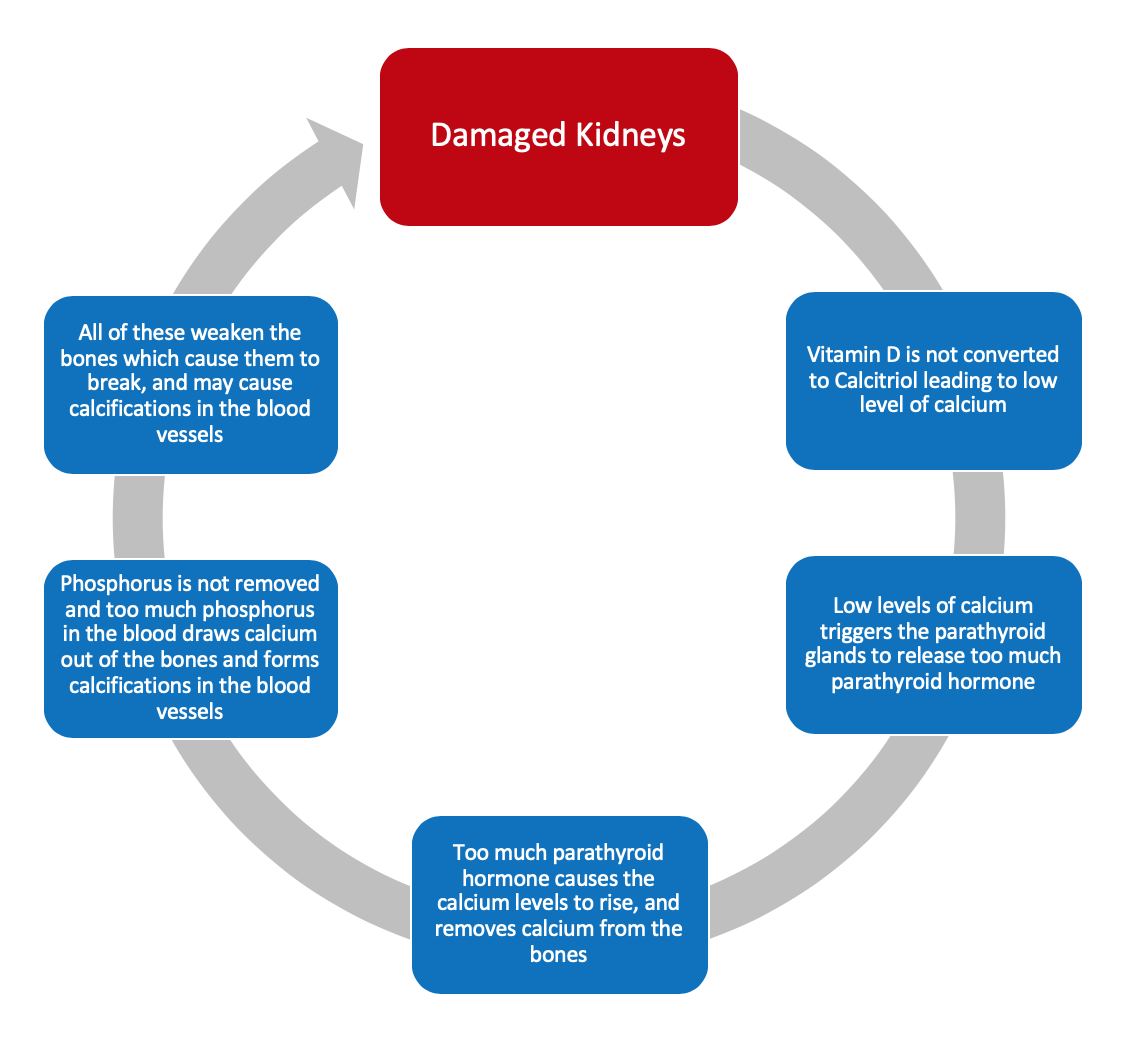 (click on image to enlarge)
(click on image to enlarge)
What complications are there with mineral and bone disease?
- Kidneys work hard to remove phosphorus in the blood, but if kidneys are damaged then…
- High levels of phosphorous cause too low levels of calcium in the blood then...
- If calcium levels get too low, the parathyroid hormone gets released then…
- The parathyroid hormone removes the calcium from the bones, and puts it in the blood which raises the level of calcium in the blood too high then...
- Too much calcium in the blood can damage blood vessels which ultimately damages the heart then...
- High phosphorus levels can lead to calcifications and hardening of the arteries then...
- The blood flow in blood vessels are disrupted and may lead to amputations and even heart disease.
How is mineral and bone disease treated?
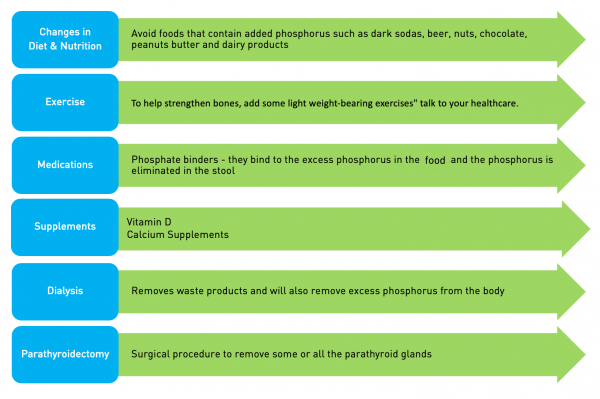
This AAKP patient education web page is funded by support from Ardelyx. The educational content shown is unbranded and unbiased and has not been determined or influenced by any sponsor(s). It’s intended for educational purposes only.
NATIONAL PHOSPHORUS AWARENESS DAY
Join us for National Phosphorus Awareness Day annually on April 5 to bring awareness of knowing your phosphorus levels. AAKP wants you to learn more about “The Hidden “P” in Kidney Disease.
This educational awareness campaign is funded by support from Ardelyx.
